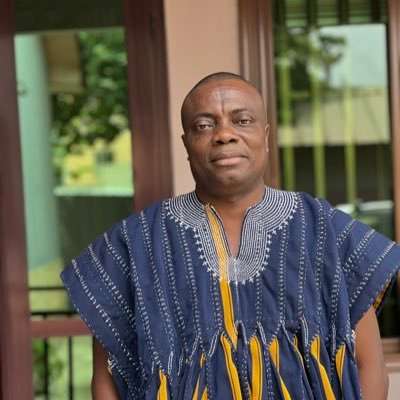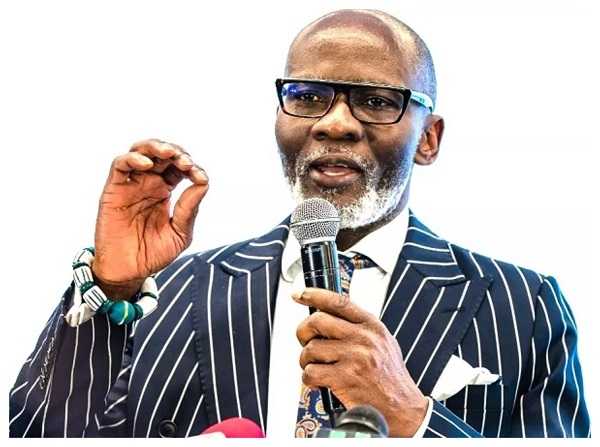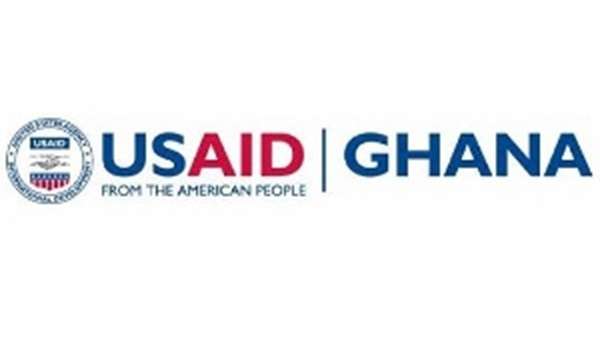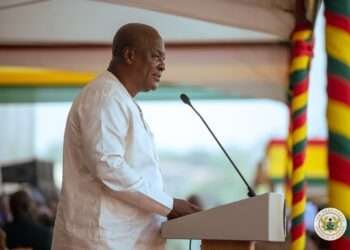Mussa Dankwah, Executive Director of Global InfoAnalytics, has urged Ghana to adopt a more self-reliant approach to budget planning by completely removing donor dependency in its financial projections.
According to him, this will provide a clearer picture of the country’s actual fiscal deficit and help in devising sustainable economic strategies.
His advice comes in response to the recent abolishment of USAID funding by the U.S. government under the directive of President Donald Trump.
These cuts have already begun to affect critical health programs in various parts of Ghana, raising concerns about the nation’s dependency on foreign aid for essential services.
Accordingly, Dankwah emphasized that by acknowledging the full extent of Ghana’s budgetary shortfall without external support, the government can adopt more effective austerity measures to ensure financial discipline and long-term economic stability.
He stressed the need for the country to develop strategies that promote self-sufficiency, allowing Ghana to live within its means rather than relying on unpredictable donor support.
“Yesterday, the Northern regional health director in a letter confirmed the impact of Donald Trump’s action on health delivery in the Northern regions and indeed across the health sector in general
“Election results from some countries have consequences on us here in Ghana. Whether you support Trump or not, his re-election is sending shock waves across every corner of the world”.
Mussa Dankwah
According to Mussa Dankwah, the decision to cut USAID funding is likely to have severe consequences, including an increase in HIV/AIDS-related deaths, a rise in maternal mortality, and adverse effects on child health—not only in Africa but across the globe.
He warned that the withdrawal of such critical financial support could lead to setbacks in public health efforts, particularly in regions that heavily depend on donor funding for life-saving interventions.

Dankwah further noted that the funding freeze—or cut, regardless of how it is labeled—is already having a significant impact on several Civil Society Organizations (CSOs) in Ghana.
Many of these organizations rely on international aid to sustain their operations, particularly in areas such as healthcare, education, and poverty alleviation.
Without alternative funding sources, he cautioned, some CSOs may struggle to stay afloat, and if the situation persists, many will be forced to shut down, further deepening the challenges faced by vulnerable communities.
Dankwah highlighted that numerous USAID staff members in the United States have already lost their jobs, and an even greater number are at risk of unemployment in other parts of the world due to the funding cuts.
While acknowledging that the U.S. has the sovereign right to decide how it allocates its resources, he emphasized the importance of giving recipient countries sufficient notice before terminating aid.
According to him, providing clear timelines for the withdrawal of financial support would enable affected nations to plan ahead and develop strategies to manage their programs without reliance on U.S. assistance. “Rational or irrational, this is Trump 2.0 on steroids”.
Cut Donor Dependency Threatens Key Sectors
Meanwhile, in response to the development, Gabby Otchere-Darko, an adviser to former President Akufo-Addo, also described the situation as significant.
He emphasized that this underscores the urgent need for Ghana and the rest of Africa to take greater control of their own future, warning against donor dependency.
According to him, now more than ever, the continent must strive for self-reliance, with its people taking responsibility for financing their own welfare, well-being, and dignity.

“Imagine how many livelihoods will be affected by this? My own sister, is a program manager for one of the biggest CDC-funded HIV/TB programs in the world, Ekurhuleni at Wits Reproductive
“Health and HIV Institute (Wits RHI) in South Africa. She, being a medical doctor and public health specialist, may have no problem finding a job…”
Gabby Otchere-Darko
However, Otchere-Darko expressed deep concern over the fate of the thousands of professionals who had been trained under the now-suspended program.
He questioned what would happen to them, highlighting the uncertainty surrounding their future.
More critically, he pointed out the devastating impact on the many vulnerable patients whose survival depends on the services provided by these trained personnel.
The abrupt suspension, he warned, not only disrupts livelihoods but also puts countless lives at risk, underscoring the dire consequences of the funding cuts.
READ ALSO: Trump To Sign Executive Order Targeting Transgender Athletes In Women’s Sports




















